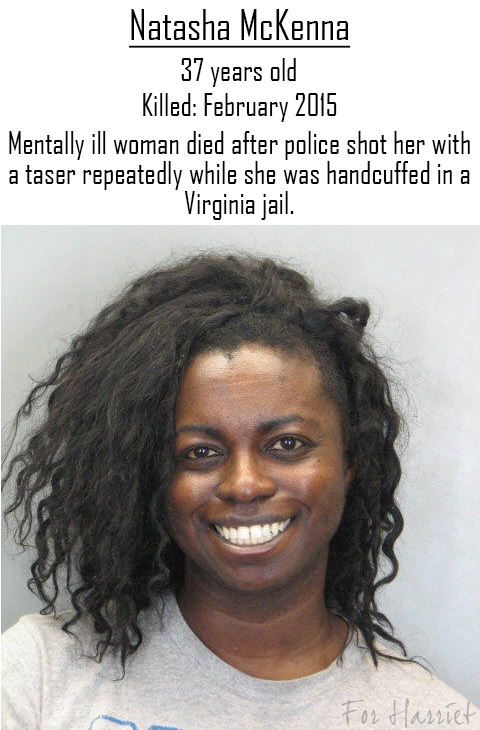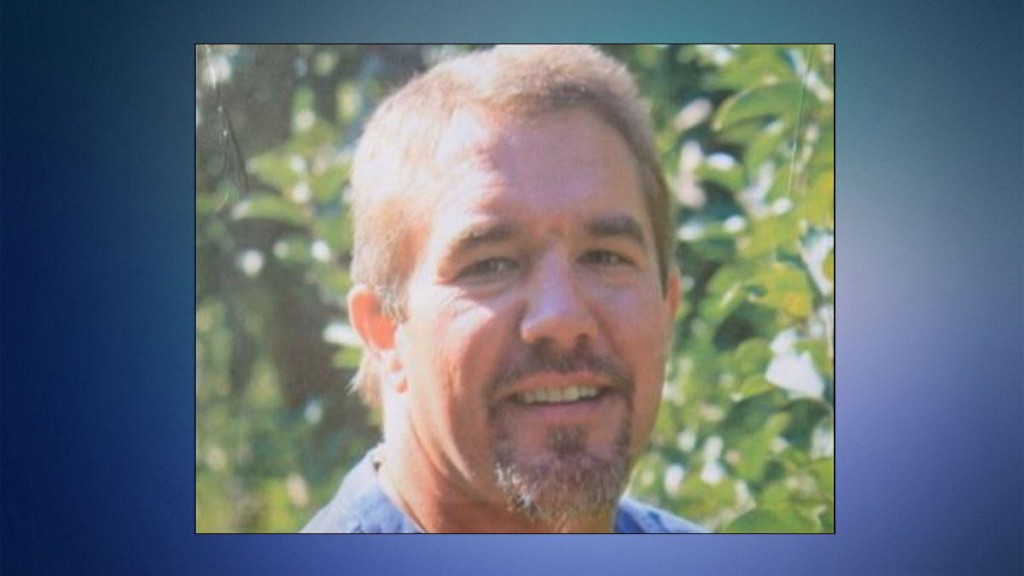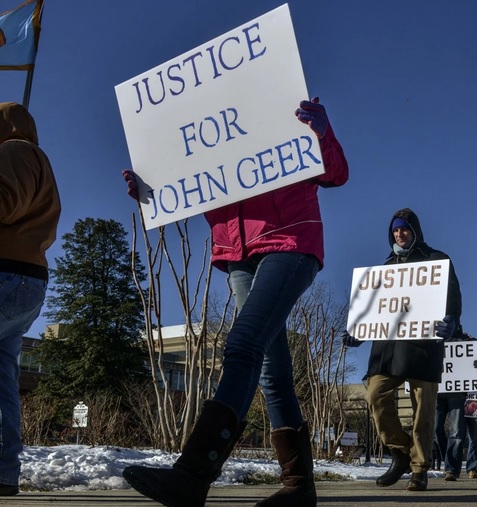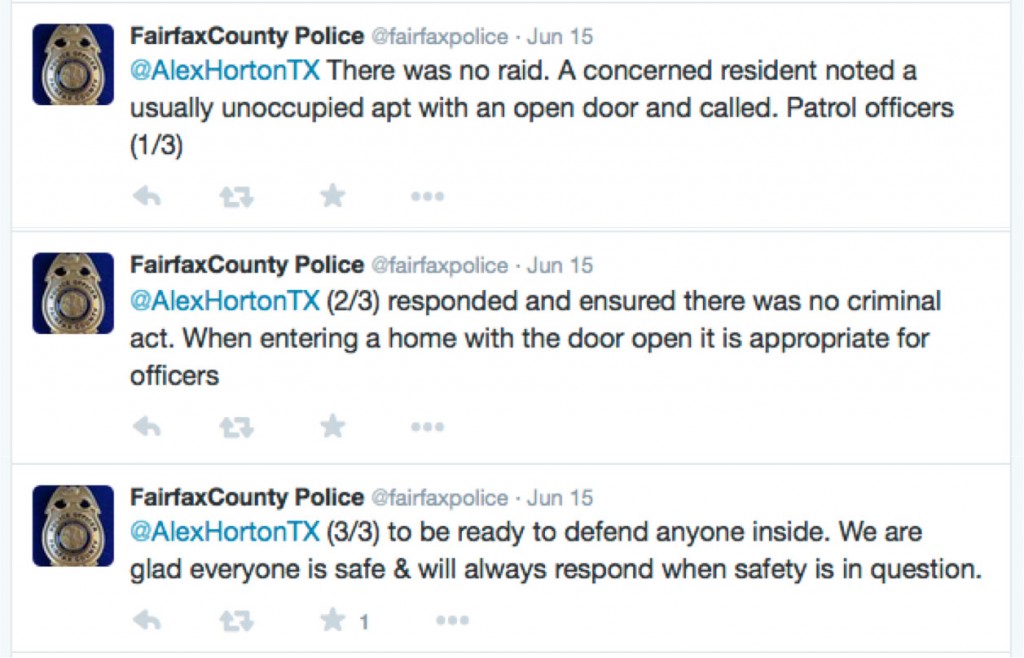Virginia’s Fairfax County Police Department (FCPD) and Fairfax County Jail have been the focus on recent investigations into police brutality and abuse, which have resulted in the death of three individuals in Fairfax County.
The Washington Post’s Tom Jackman has repeatedly reported about the fatal shooting on John Geer, a Springfield resident, by the Fairfax County, Virginia police on August 29, 2013, during the police investigation of a domestic dispute. Four Fairfax County Police Department (FCPD) officers stated that John Geer’s hands were above his head when he was shot. This contradicts the statement by FCPD’s police officer Adam D. Torres, who stated that Geer was reaching for a weapon.
According Mr. Geer’s partner’s attorney: “John stood there for 45 minutes with his hands above his head,” “speaking calmly with Officer Barnes, saying he didn’t want to die that day and then he was shot in the chest. ”
Fairfax County settled the family’s civil suit in April for $2.95 million.
As delays in the investigation have been extensive, public and lawmakers have protested to the FCPD, including protesters outside of the FCPD offices.
On July 27, 2015, the Washington Post reported that a special grand jury was being named to investigate this police shooting two years ago. It reports: “A special grand jury, rarely empaneled in Fairfax County, began hearing testimony Monday in the 2013 killing of an unarmed Springfield man by a Fairfax police officer, hearing first from a Fairfax homicide detective and then from the longtime partner of the victim, John B. Geer.”
“The jury is expected to meet at least through the end of this week and then again in mid-August, Michael Lieberman, a lawyer for Geer’s family, said prosecutors told him. The jury may hear from at least 20 witnesses subpoenaed by Fairfax commonwealth’s attorney Raymond F. Morrogh, and jurors could then request additional witnesses or evidence, Morrogh has said.”
The Fairfax County Police Department has been the subject of repeated reports and questions about such shootings, which it has been unwilling to release in the past. The Fairfax County police justice system has been also the subject of questions regarding abuse of individuals in prison. In Virginia, law enforcement agencies may release, or withhold, any investigative information under state public information law, indefinitely.
This has included the case of police shooting victim David Masters who was killed in November 13, 2009, because police believed he was driving a stolen vehicle and he had taken some flowers out of a planter. David Masters was a former Army Green Beret. FOIA reports on the case have been denied by the Virginia police.

Natasha McKenna,37, dead after repeated electric shock via police taser while restrained in a chair.
This has also included he electrocution death of restrained woman. In February 2015, R.E.A.L. reported on the killing of an African-American woman at the Fairfax County Jail, Natasha McKenna, who died after by shackled by police deputies and a Taser stun gun was used on her on February 3, 2015, repeatedly for failing comply with the deputies’ commands, according to reports citing the sheriff’s office. The repeated Taser shocks apparently drove her into a cardiac arrest and resulted in her death. She was shackled while being repeatedly shocked with an electric Taser stun gun, with four 50,000 volt shocks from the Taser gun, while strapped into a restraint chair. She died in the hospital on February 8, 2015.
In yet another case involving the Fairfax County Police Department, former Iraq war veteran Alex Horton writes in the Washington Post on July 24, 2015 about how how “three [FCPD] police officers barged into my apartment, barking their presence at my door. They sped down the hallway to my bedroom, their service pistols drawn and leveled at me.” The FCPD officers with guns leveled at him was because he was staying in a spare apartment at the approval of the apartment house management, while his dishwasher was being repaired in his apartment. A neighbor who didn’t recognize him called the police on him as a “squatter” (not true). As Mr. Horton states, “the Fairfax County officers in my apartment were aiming their weapons at a target whose rap sheet consisted only of parking tickets and an overdue library book.” “I spread my arms out to either side. An officer jumped onto my bed and locked handcuffs onto my wrists. The officers rolled me from side to side, searching my boxers for weapons, then yanked me up to sit on the edge of the bed.”
Mr. Horton writes “When I later visited the Fairfax County police station to gather details about what went wrong, I met the shift commander, Lt. Erik Rhoads. I asked why his officers hadn’t contacted management before they raided the apartment. Why did they classify the incident as a forced entry, when the information they had suggested something innocuous? Why not evaluate the situation before escalating it? Rhoads defended the procedure, calling the officers’ actions ‘on point.’ It’s not standard to conduct investigations beforehand because that delays the apprehension of suspects, he told me. I noted that the officers could have sought information from the apartment complex’s security guard that would have resolved the matter without violence. But he played down the importance of such information: ‘It doesn’t matter whatsoever what was said or not said at the security booth.'”
“This is where Rhoads is wrong. We’ve seen this troubling approach to law enforcement nationwide, in militarized police responses to nonviolent protesters and in fatal police shootings of unarmed citizens. The culture that encourages police officers to engage their weapons before gathering information promotes the mind-set that nothing, including citizen safety, is more important than officers’ personal security. That approach has caused public trust in law enforcement to deteriorate.”
On the wrongful raid on Mr. Horton’s apartment, the FCPD Chief Colonel Edwin C. Roessler Jr. stated that “ I can assure you no SWAT response was utilized in the response to this call for service [R.E.A.L. Note: this is a blatantly false characterization of Mr. Horton’s article in the Washington Post]. However, the Fairfax County Police Department takes seriously the writer’s remarks and as such, an inquiry by the Department’s Internal Affairs Bureau is being conducted at my direction.”
==========================
The lack of restraint by those using extremist military tactics is undermining the public’s confidence in law enforcement. Extremist behavior does not help law enforcement, it does not contribute to our justice system, and it actively undermines law and order.





